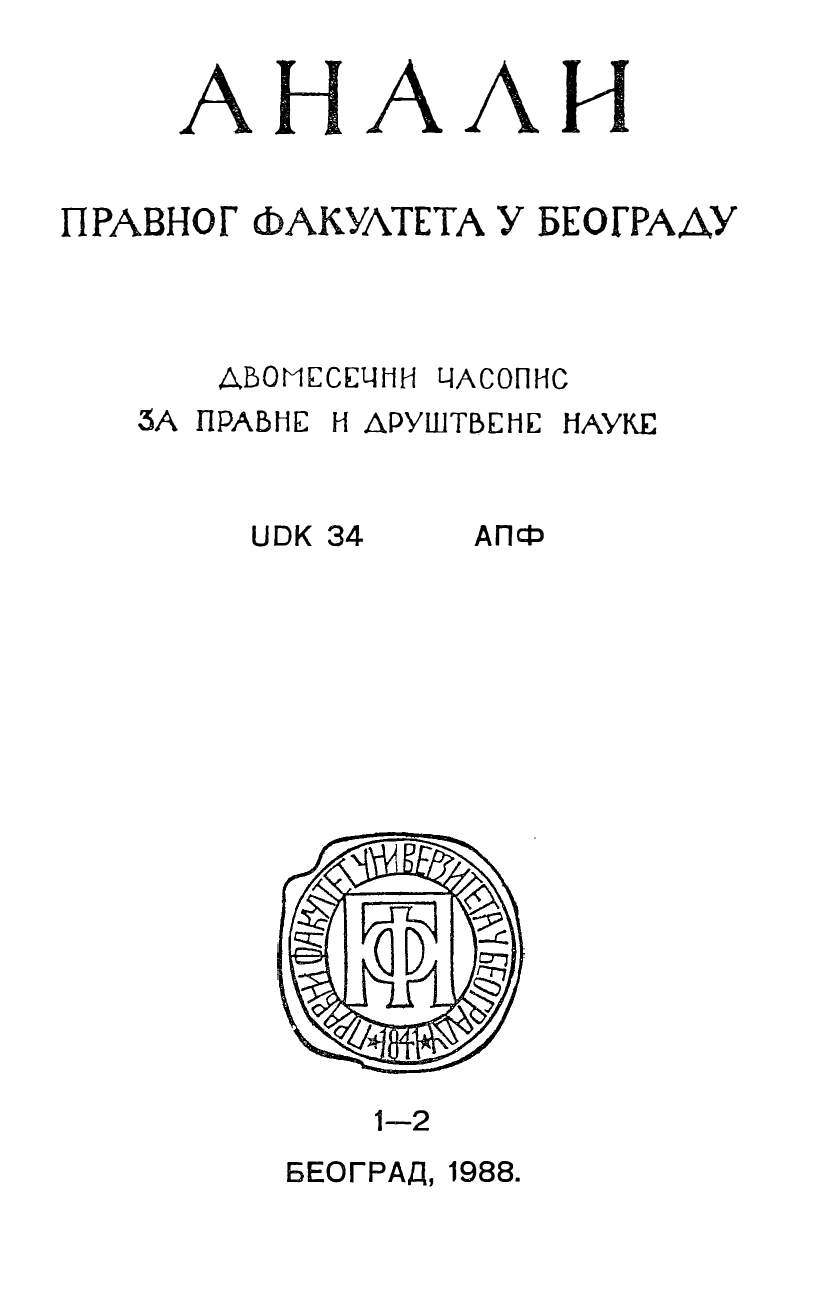ПОДЕЛА ГРАЂАНСКИХ СУБЈЕКТИВНИХ ПРАВА НА СТВАРНА И ОБЛИГАЦИОНА
CLASSIFICATION OF CIVIL SUBJECTIVE RIGHTS INTO PROPERTY RIGHTS AND OBLIGATION RIGHTS — AN ATTEMPT AT NEW CLASSIFICATION
Author(s): Radmila Kovačević KuštrimovićSubject(s): Law, Constitution, Jurisprudence, Civil Law
Published by: Правни факултет Универзитета у Београду
Summary/Abstract: The classification of civil subjective rights, due to the impossibility of their complete enumeration, is a rather important question of the civil law theory. One of the classifications which relates to distinguishing between property law rights and the obligation rights, is one of the oldest ones. It originates already in the earliest Roman law with the tendency to classify all subjective civil rights into two groups — tercium non datur. Conceived as an alternative classification, it did not permit that rights belonging tho one of the groups of rights mix with the other group of rights. The classification of civil subjective rights into the property rights and obligation rights was created with the distinguishing between actions by which subjective rights have been protected. If the action was related to a property which had to be restituted to the plaintiff, such right was termed „in rem" and if the claim related to the person of the debtor, the rights concerned were personal, d.e. obligation rights. The modern law has changed the relationship between the rights and the action, and the very objects of 'both kinds of rights have changed, too, so that new rights were created. All this influenced the need for correction of mentioned classification. Legal theory has shown that approaching between these two groups of rights was effected in the sphere of the objects; property as the object of property law rights has been „dematerialized” (electric power, gas, atomic energy, bioenergy, of sea plankton, and the like}, while the objects of obligation rights have been „materialized” — namely, the object of obligation is debtor’s action which, in the final analysis, is situated within the property of the debtor, so that it is available for possession as an object (property}. Approaching between property and obligation rights through the object was reflected into the similar effects of these two groups of rights. The obligation rights are effective just as the property rights, since they are situated within the property of their holder, which property, in itself, enjoys the unified (single} protection. The attempt of legal theory to unify these groups of rights has followed either the line of identifying the property law rights with the obligation rights (the so-called personalistic thesis}, or that of giving priority to property law rights (the theory of the right of ownership to the claim}. We do consider that the classification of rights into the property and obligation rights has been surpassed, since the reason, namely the principle of distinguishing, ceased to exist. In addition to that, changes which took place in the law after the Roman law, and more particularly the creation of new branches of law (copyright law, the law of inventors, personal rights}, do not permit the continuation of that seemingly clearly defined group of subjective rights. The right to a claim is a kind of property right or, more precisely, one of its phases ; the right of ownership over a property (object} enables the owner to use it, while the right to a claim provides for a possibility to acquire money for the property sold; the money, on the other hand, makes possible satisfying of every kind of needs. Therefore the obligation rights are not opposed to the right of ownership. In addition to the right of ownership, it is possible to distinguish the sectorial rights or the rights which take place regarding various positive or negative elements out of the „totality” of powers characteristic for the right of ownership. These are the following; usufruct, mortage, right of building and the like. It is another issue that the right of ownership regarding a property, namely the claim, can be further classified into the rights related to the property, to the claims, to chattels, real property, etc.
Journal: Анали Правног факултета у Београду
- Issue Year: 36/1988
- Issue No: 1-2
- Page Range: 26-57
- Page Count: 32
- Language: Serbian

